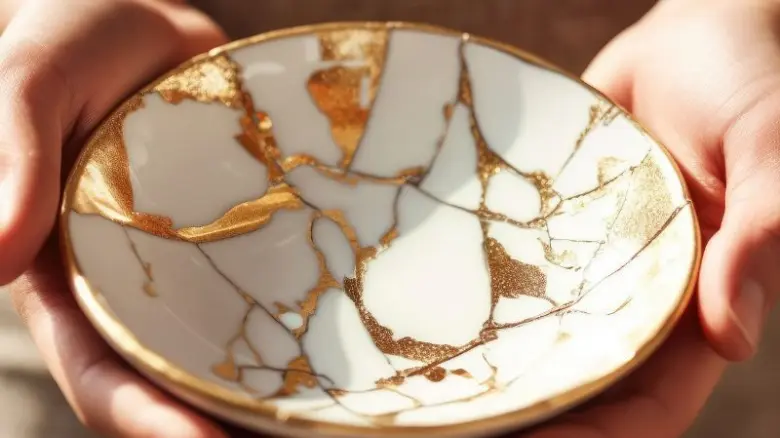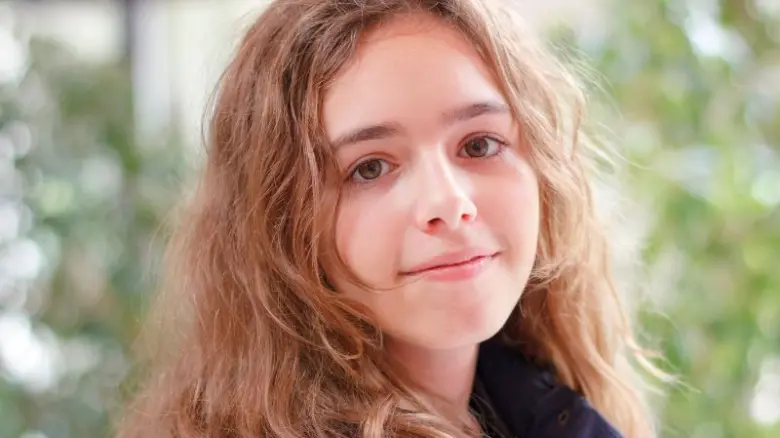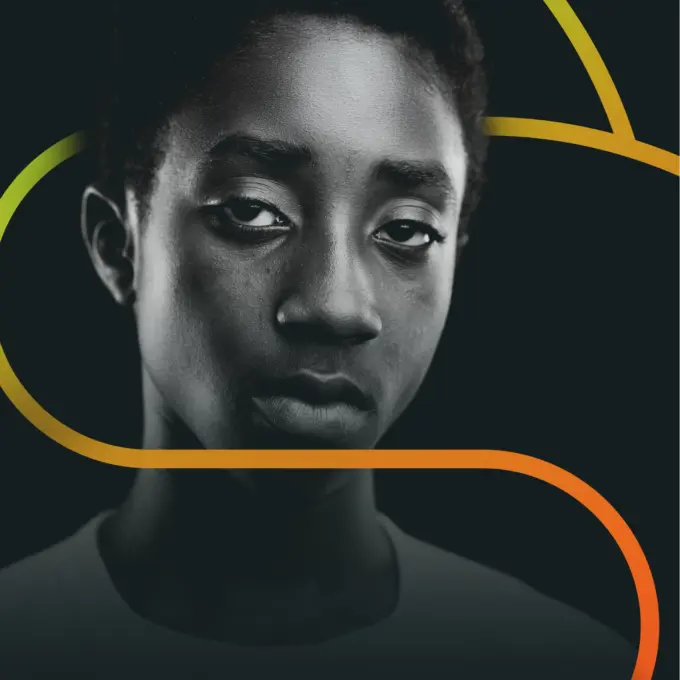
You can’t appreciate the light if you haven’t felt the darkness.
Meet Mariya, Safer London’s CSA Navigator
*Trigger Warning* Child Sexual Abuse
To mark Youth Mental Health Day we sat down with Mariya, a dedicated CSA Navigator working as part of the Emotional Support Service*.
Providing emotional wellbeing support to children, young people and their families impacted by Child Sexual Abuse (CSA) is the core focus of the CSA Navigator’s role. In our talk, Mariya delves into why this role matters so much in helping young Londoners on their healing journey and how tough experiences can help them grow and become stronger.
Our job is not to fix people; people are not broken. They already have the strength and potential, we’re just here to help bring that out of them.
What is the purpose and function of your role?
My role is all about providing spaces for young Londoners to essentially just feel safe. There’s going to be a lot of instances where they might not even want to talk about what happened. You might not even get to that point. But it’s not really about that. It’s just about the fact that they’ve had these experiences which have made them feel unsafe, and even if they don’t speak about it, even if they never talk about what actually happened, the fact that they feel safe around you and comfortable, that alone makes a huge difference.
The role is essentially about giving them a space to improve their wellbeing, whatever shape and form that looks like, and to let them take the lead on that.
We talk a lot about the fact that in whatever work you do, it’s always child centred. Sometimes that means you have to leave your ego at the door. There might be a lot of things that they might not agree with, or you might have ideas for sessions that might not go well, but it’s not really about you. It’s not a reflection on your skills or what you’ve done. It’s really about what works for them. We always have to make sure that everything we do is actually helping them, and it’s not for us. It’s not to make us feel better, it’s for them. That’s what I think of to ground myself going into these cases. It’s one of the rules.
I also attend medical appointments. So, if a child or young person needs to do a medical check-up, we’re there to support them. So, there are different aspects to this job.
Why is this service so important for the young Londoners and families you work with?
I think that starting off by establishing what we are not here to do is a good starting point. I think many young Londoners might look at us and feel alarms going off in the back of their minds. I always try to begin by saying, “This is who we aren’t; we are not the police, and we’re not here to get you in trouble.” I think that once you get that out of the way, it gives them more clarity about what we are here to do.
Also, in my opinion, what we’re also not here to do is to fix anybody because I don’t think people are broken, no matter what happens to them. I don’t see people as broken. People are complex, and it’s all these traumatic experiences that make them complex. I think when you view services as something that is here to fix people, it’s a very victimising and demeaning mindset that suggests people are inherently victims, and they’ll stay that way just because of these experiences.
I don’t ever think that our job here is to fix people. I think that these services are here to guide people. Everything they need to support themselves, the tools, they already have, and our job is just to guide them to see those tools or offer new ones. They already have the strength and potential, we’re just here to help bring that out of them.
This service lets people know that they can challenge their experiences, and things don’t have to go the way they’ve been told they need to go. I think that’s really important as there are a lot of people who have never even told their parents what happened, but they might tell professionals, so even that intimacy goes a long way.
The last thing I would probably say is that these kinds of services help people know that the world is working for you, not against you. I think a lot of people who come from really traumatic experiences think that the world is against them, people are against them, but these services are bringing a new perspective – things can work for you, and people can be there for you. It’s not always going to be against you.
What role does emotional wellbeing/mental health play in your work with young Londoners and their families?
I think first and foremost, understanding what has happened is a good way to find meaning and strength in the trauma. It helps to understand how these experiences shape who you are and how they can actually be valuable. It can be an asset in many ways. It doesn’t have to be something that tears you down. I think that if you look at it from a mental health perspective, considering how these experiences make you stronger I believe it really helps change the way you look at your life. I think mental health plays a strong role in coping, especially in recognising the meaning of trauma.
A useful way to look at this is using metaphors. In Japanese culture, they use Kintsugi to mend damaged objects. For example, a bowl is broken, and they fill in the cracks with gold. The idea is that the more a piece or item has been shattered or gone through experiences, the more beautiful and better it becomes.
Another point I would like to make is challenging the idea of what’s normal and what’s abnormal. When you look at definitions of trauma, usually the definition that comes up involves things that are unusual – or outside of the “ordinary.” I think that makes people feel like they’re not normal, in the sense that because they’ve had these experiences, it means that they’re abnormal and not really a regular part of society.
I think when it comes to emotional wellbeing, it’s not about what’s normal and abnormal; it’s just an experience, and it’s about the meaning you give to these experiences that defines them and the meaning that you attach to it. It’s not the meaning that others have attached to it, but how you see it. I think the bottom line is that it’s really about building confidence in yourself to take control of the way you see your own life and building your narrative around the meaning that you’ve given to it.
Lastly, we often use the term “mental health,” but one term that I have heard used more now is “mental fitness.” What that essentially means is, you know when you go to the gym, you work on physical fitness, building certain muscles, and the more you work on it, the stronger your arms get, the stronger your legs get. So, mental fitness works in a similar way; you work on the muscle of being happy, you work on the muscle of being resilient, and the more you work on those muscles, the stronger they become.

How important is emotional wellbeing/mental health for the development and progression of young Londoners – especially in relation to those impacted by CSA/CSE?
I’m going to use another metaphor here. When you’re building a structure, it’s important to have a solid foundation. On top of that foundation, you add layers and more floors. So, for me, mental health is that foundation. If you have a strong foundation for coping with difficult experiences, understanding how to build self-compassion, and grasping those basic principles of living well and being well, it becomes easier to develop from there.
It’s not about building a perfect life with a strong foundation, as it can get bad at times. However, I think if you have that robust base, even when things go wrong or you experience a relapse, you can still have a strong foundation to fall back on. You can remind yourself, “This is who I am. This is what this means.” You have something to fall back on when you feel like you are falling. For me, having that foundation is what mental health means, having a firm grasp on who you are and understanding that.
Another point I’d like to make is that I believe if you don’t understand why you feel the way you do, it makes you more susceptible to exploitation and being taken advantage of by others. People who are vulnerable often struggle with their identity, which is closely tied to mental health. If you don’t comprehend what’s happening internally, it can manifest externally as well. Therefore, I think this is a relationship that needs to be examined and worked on.
Mental health is your most powerful tool. Although it’s good to have access to support services, family, and friends, they might not always be there or available to assist you. Especially as you grow older, that support may not always be as readily accessible as it is when you’re younger. I believe that if you have a strong grasp on your mental health, it helps you become independent, and you become the person you can rely on, even when no one else is around to answer the phone.
You already have everything you need to get better. It’s already inside you. You already possess all those tools.
This year’s Youth Mental Health Day theme is #BeBrave. It’s about giving young people the courage and confidence they need to achieve their goals and ambitions and be the best version of themselves they can be.
I would probably start by saying “You already have everything you need to get better. It’s already inside you. You already possess all those tools. The fact that you’ve been through that traumatic experience, yet you woke up the next day and the day after that, and you’re putting on your clothes, you’re brushing your teeth, that alone shows you have the strength”.
I would add that you don’t need to be an adult to be strong. I think the youth are actually stronger than adults in many ways. There are many adults who would have these kinds of things happen and wouldn’t be able to get out of bed for days and weeks, yet children have the ability to just keep going. When I look at some of these cases, I know myself, I probably would have just stopped getting out of bed altogether. But these kids are still going, so they have something that I feel like many adults don’t. They have that advantage.

In the classroom when you talk to your friends about the difficult things in your life, it’ll be problems like, “Oh, I had a fight with my brother” or “I got grounded.” These are very everyday problems, but sexual abuse is not something everyone in the classroom might have experienced, and not everyone in your friend circle might have gone through it. So, it might seem like you’re the only one who’s been through this, but it’s actually quite common. It might have happened to someone you know, but they don’t talk about it. It might seem like you’re the only one going through it, but it’s a common experience. This is a good place to start, to make young people feel like they are not alone, and there are others who can relate to it.
I think the thing they might struggle with the most is that kids are always about role modelling. When they don’t meet others who’ve been through that experience, it might be difficult for them to know where to start to get better. They might ask, “who do I look to, for example?” My advice for that is that it’s actually kind of a blessing in disguise that you might not have anyone at that moment to model anything after. Because that means you’re going to have to find your unique way to build yourself, instead of copying what someone else did. There are versions of everybody else out there, but there isn’t a version of you. This is your chance to build that unique version of yourself.
Also, some of the most influential people in the world who have made an impact have suffered a lot of trauma, and they’ve made that impact because of that trauma. So as difficult as this experience is, there is value in it, and there’s meaning in everything. You definitely have meaning in your experiences as well, even if it doesn’t seem like that at the moment.
The cracks in your heart let the light through, and it’s always for the better. It makes you glow and shine brighter.
Have you got any advice or tips on how to build up a young Londoner’s self-esteem or confidence after experiencing trauma? Think about how you may do this in your own practice.
Kind of just adding on to what I already said, these experiences make you stronger and wiser. They can actually help strengthen your quality of life because they help you adapt and gain a deeper understanding of life in ways that wouldn’t have been possible if this hadn’t happened to you.
From a session perspective, I advise young people to make a list of the positive and negative things they’ve gained from this experience. Writing everything down and organising it can help you understand why this happened and the meaning behind it. It’s about quality, not quantity. So, if you feel like you’re finding 20 things that are really negative and maybe just one thing that’s positive, I still think that one reason to hold on is better than 1,000 reasons to let go. If that one positive reason is an amazing value that you’ve found, it still outweighs all the 20 negative things you’ve identified.
What’s the most valuable piece of advice you would pass on to the young Londoners we work with around their emotional wellbeing/mental health?
I’d say you can’t appreciate the light if you haven’t felt the darkness. I think that people who’ve been in the darkest moments are the ones whose quality of life is actually quite strong, much stronger than those who haven’t experienced anything at all. That’s because they have a deeper appreciation of life and a deeper sense of understanding life.
The last metaphor I’ll use is that if you’ve had a lot of bad experiences, sometimes you may feel like there are cracks in your heart. I’d probably say, look at the cracks as a way of letting the light in. This is how light gets through, by having experiences that make you feel broken. The cracks in your heart let the light through, and it’s always for the better. It makes you glow and shine brighter.

Help change the lives of young Londoners, their families and communities
Show your support and make a donation
CLICK HERE